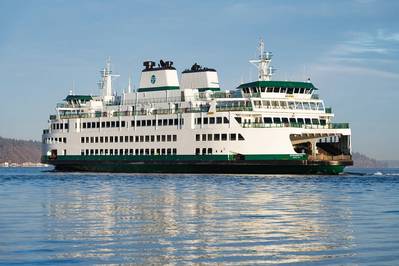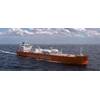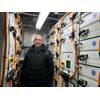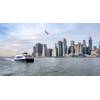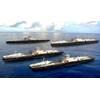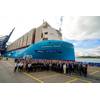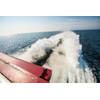ABB Selected to Provide Propulsion for Washington State Ferries' New Hybrid Vessels
Washington State Ferries (WSF) has tapped ABB to design and supply the propulsion systems for its new series of five hybrid electric ferries.
ABB was previously selected for the project in 2020 after the original build contract was awarded to Vigor, but the competitive bid process was relaunched following disagreements between WSF and the shipyard over price and other contract terms.
In May of this year, WSF invited shipyards across the country to bid on construction for the five new ferries. WSF intends to award build contracts to one or two shipbuilders in early 2025 for targeted delivery of the first two vessels in 2028.
Under its newly awarded propulsion single source vendor contract, ABB will design and oversee delivery of the vessels' hybrid electric propulsion systems, including the Onboard DC Grid power distribution solution, energy storage, advanced energy management and integrated marine automation. It will also deliver design and engineering support as well as operation and maintenance training for WSF’s crews.
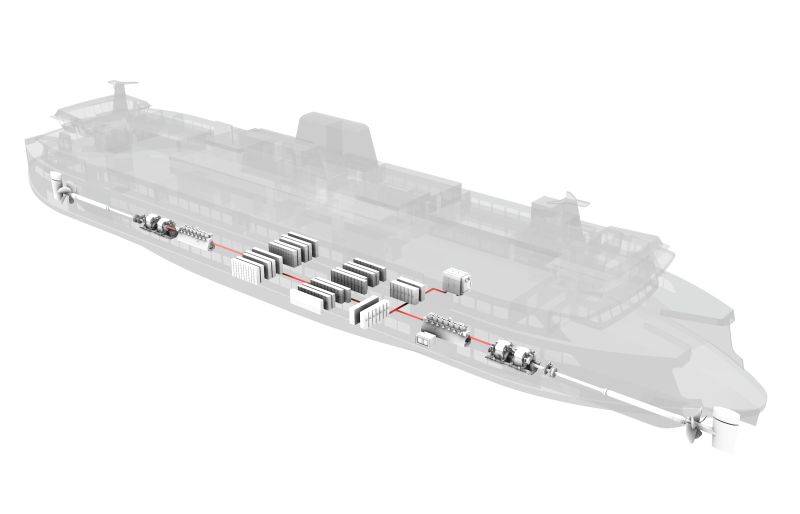 (Image: ABB)
(Image: ABB)
“Big picture, this contract with ABB is about rebuilding our fleet and restoring reliable service to our customers,” said Matt von Ruden, WSF system electrification program administrator. “ABB’s specialized knowledge and expertise helps reduce risk and ensure performance in the design, construction and delivery of our new hybrid-electric ferries.”
Drew Orvieto, vice president of sales for Marine Systems, US at ABB Marine & Ports, said, “This partnership highlights our shared vision for sustainability and our dedication to pioneering advanced technologies that drive the industry forward. We look forward to supporting WSF in its mission to provide cleaner, more efficient ferry services for the communities they serve.”
WSF, which manages the largest ferry system in the United States, currently operates 21 auto-passenger ferries across 10 routes serving 19 terminals. It aims to run a zero-emission fleet by 2050.
The five new 1,500-passenger, 160-vehicle hybrid electric ferries will be the first of 16 new vessels delivered as part of WSF’s $3.98 billion Ferry System Electrification plan. In addition to the 16 newbuilds, the electrification program includes the retrofit six current diesel ferries to hybrid electric, retirement of 13 diesel ferries and charging power installations at 16 terminals.


